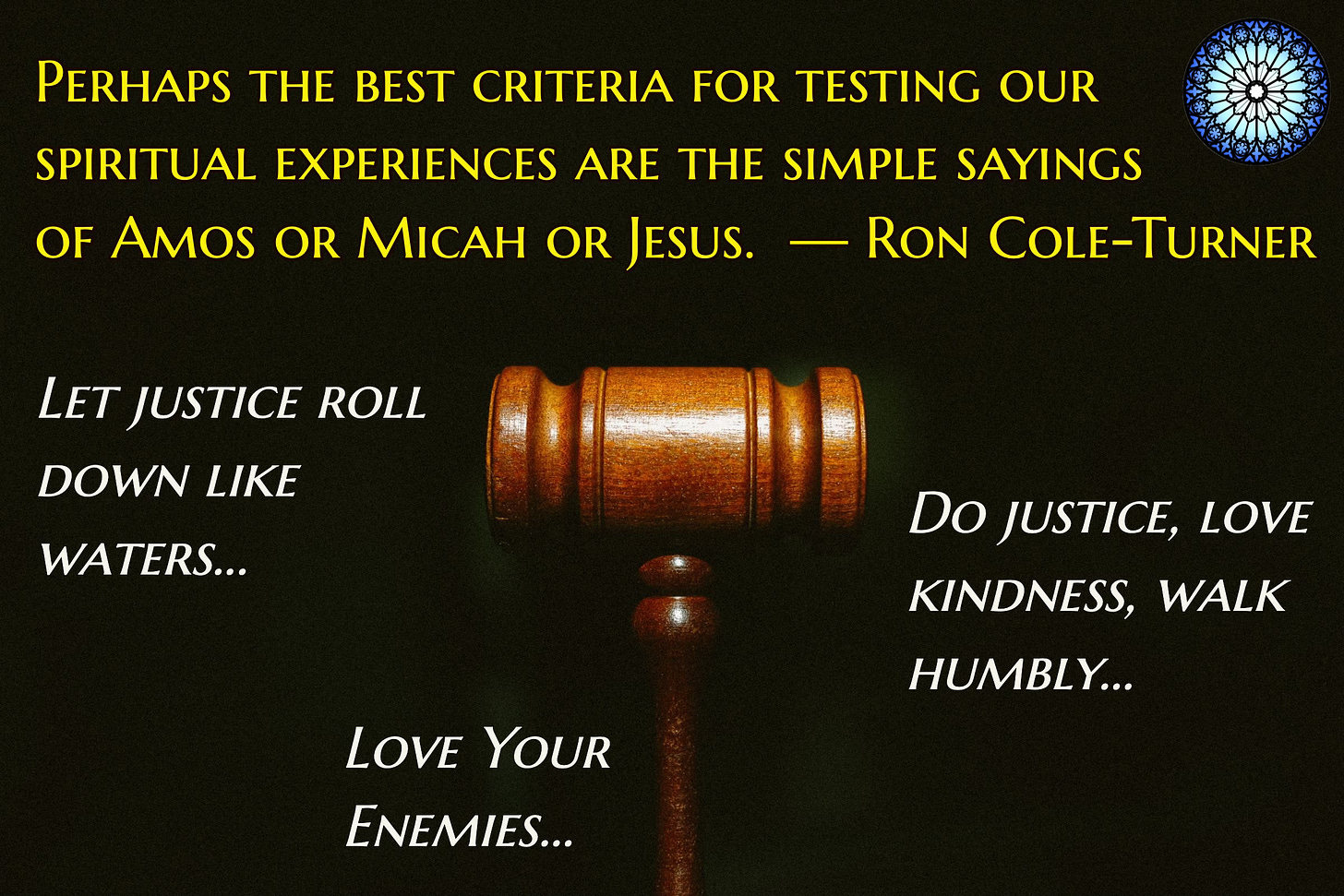The Best Criteria
Mystical Spirituality Has No Goal. Still, There Are Steps to Take.
Perhaps the best criteria for testing our spiritual experiences are the simple sayings of Amos or Micah or Jesus. Let justice roll down like waters. Do justice, love kindness, and walk humbly with your God. Love your enemies. — Ron Cole-Turner
The most common definition of mysticism is simply this: “experiencing God.” Of course, the word “God” can be pro…




